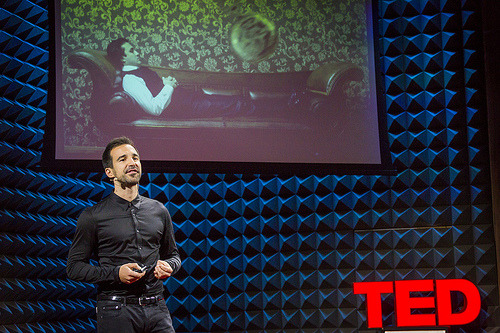 Here’s a little punk-rock music history for you:
Here’s a little punk-rock music history for you:
Prior to his 2009 conviction for the murder of actress Lana Clarkson, Phil Spector was one of music’s most accomplished producers – crafting the legendary “wall of sound” that defined 1960s pop music. When Spector paired with the Ramones to produce their 1979 album End of the Century, it was widely considered a meeting of some of the greatest minds in music.
However, the partnership was anything but harmonious. Spector was a maniacal producer, constantly remixing songs and reportedly holding the band at gunpoint while he forced guitarist Johnny Ramone to play the opening chord of “Rock ‘n’ Roll High School” hundreds of times. The result? An album that cost more than $700,000 (about $2.4 million today) and is considered by critics, fans, and the band itself to be the Ramones worst work.
What does any of this have to do with anything? It illustrates three ways that companies typically mismanage their creative employees.
1. Holding them hostage – OK, so your managers probably aren’t brandishing firearms at their employees (we hope), but they may not be giving them the space they need to be creative.
Giving people freedom and flexibility enhances creativity at work. Don’t constrain your creative employees; don’t force them to follow processes or structures. Let them work remotely and outside normal hours; don’t ask where they are, what they are doing, or how they do it.
2. Surrounding them with too many other creative people – Creative people don’t play well together; 360° data demonstrates that innovative individuals are driven by the desire for success and control and display above-average drive and competitiveness. When two of these personalities collide, they tend to compete for ideas or keep them to themselves.
Spector had his vision for the album, and the Ramones had theirs. Forcefully combining the two resulted in a lack-luster end product.
3. Putting them under bad managers – Research shows that about 75% of managers have no business being in charge of others, and nothing kills creativity like a crappy boss. This could account for an Adobe survey in which only one in four respondents said they were living up to their creative potential.
Whether or not Spector actually held the band at gunpoint, the Ramones all expressed disappointment in the songwriting on End of the Century.
Want to know more about managing your creative employees? Check out our complimentary eBook, 5 ways to Manage Creativity and Drive Innovation.


 Hiring managers live in the most technologically advanced age yet. We’ve gone digital – our complete work and life experience all neatly splayed out on LinkedIn and Facebook. So why has recruitment not progressed beyond the interview? In his latest blog for
The Guardian, Tomas Chamorro-Premuzic offers 4 reasons the digital age has yet to revolutionize recruitment.
Hiring managers live in the most technologically advanced age yet. We’ve gone digital – our complete work and life experience all neatly splayed out on LinkedIn and Facebook. So why has recruitment not progressed beyond the interview? In his latest blog for
The Guardian, Tomas Chamorro-Premuzic offers 4 reasons the digital age has yet to revolutionize recruitment.
 I can think of few more noble/worthy causes than breaking the cycle of poverty through improving childhood educational outcomes. Here in Oklahoma, much of that work is being done through an organization called
I can think of few more noble/worthy causes than breaking the cycle of poverty through improving childhood educational outcomes. Here in Oklahoma, much of that work is being done through an organization called 
 What do Ron Johnson, Robert Nardelli, and Jack Griffin all have in common? All are smart, talented individuals who were hired to repair struggling companies and failed. Each shared a common thread: their ability to lead was undermined by a misalignment of values.
What do Ron Johnson, Robert Nardelli, and Jack Griffin all have in common? All are smart, talented individuals who were hired to repair struggling companies and failed. Each shared a common thread: their ability to lead was undermined by a misalignment of values.
 I watch too much TV.
I watch too much TV.